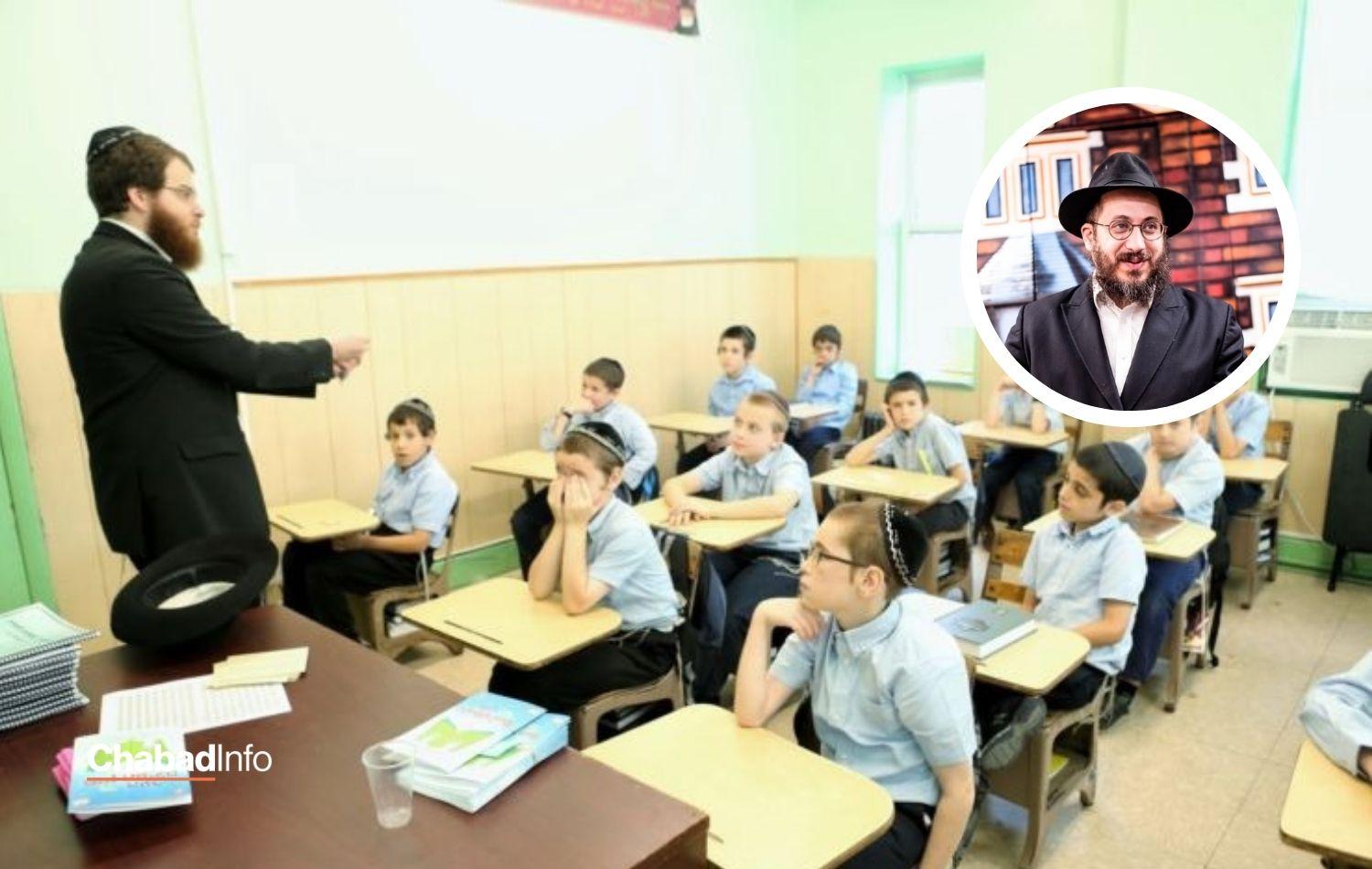Is It Time To Speak About The Role of Today’s Educators (And Parents)?
Op-Ed by Rabbi Gershon Avtzon: The summer is nearing an end and another school-year is set to begin. With each new year comes many positive resolutions and optimistic feelings that it is going to be a successful year for each student • Full Article
By Rabbi Gershon Avtzon , Cincinnati, Ohio
The summer is nearing an end and another school-year is set to begin. With each new year comes many positive resolutions and optimistic feelings that it is going to be a successful year for each student. To all the dedicated Mechanchim/Mechanchos (and the truth is that every parent is by definition an educator), I would like to share a conversation that I had recently with a fellow educator.
In honor of 11 Nissan this past year, I was invited to Eretz Yisroel to spend Shabbas with 1000 bochurim in a rented college campus. In addition to the students that were there, they were joined by many mechanchim from the various Yeshivos around Eretz Yisroel. After Davening, one of the mechanchim came over to me and asked me the following question: “Why is it that so many of today’s youth are turned off from Yiddishkeit because of something relatively small that a teacher says or does and “we” (people over 40), whose educators were less professional and expressed less love and care, were not?”
As I was reflecting on this question, two scenes came to my mind:
1 – A classmate of mine was literally hanging out the window by his feet from the third floor of United Lubavitcher Yeshiva on Ocean parkway! Our English teacher had lost patience with our class and when this boy opened his mouth without raising his hand (or something else), the teacher literally grabbed him by his feet and hung him out the window and threatened to drop him, or any of us, the next time.
Fast forward to today: That teacher is no longer teaching and B”H the young boy is today a very frum yungerman with a beautiful family.
2 – A “late night” conversation that I had many years ago with a very close Talmid of mine. This boy went through the system but never emotionally connected with what was being taught. He was, and continues to be, a very fine human being and friend. After finishing Mesivta, I invited him to come visit Yeshiva for a few days. One evening, I casually asked him if he could pinpoint what turned his heart off from emotionally connecting to Yiddishkeit. He did not hesitate and told me the following story (with time, I may have mixed up some of the small details):
“I am naturally very creative but not the strongest book learner. I have a brother, which I am very close with, that was a natural learner and always was on the “honor roll”. One semester I decided that I will put all my efforts into getting on the honor roll. I asked the teacher to be placed next to his desk, so that I would be able to focus and not be distracted and invest my heart and soul into the learning. I was successful and for the first time was developing a taste and geshmak in learning.
The day (or so) before the honor roll names were to be submitted to the principal, I came late to class (not intentionally). There was another boy that was already sitting in “my” place. I asked the teacher to move the boy so that I could have my seat but the teacher, being in the middle of a lesson, just motioned to me to sit in another seat. I, who connected the seat to my personal success, made a commotion to get my seat back. The teacher got upset with me and then told me that he had in mind to make me the honor roll but I just lost the privilege. My heart cried and turned off.”
Fast forward to today: The teacher is (probably) still teaching and this boy is – still a very good person and loyal friend, but in terms of lifestyle – not frum.
These two stories seemed to reinforce the question that I was asked, as in terms of “trauma and disillusionment”, the talmid in the first story seemed to have gone through something much worse. And yet, the first talmid decided to push forward and live a frum lifestyle and the second one (whom I am NOT judging and continue to be very close with) did not. What could be the difference?
The following is what I responded to the yungerman in Eretz Yisroel, and would like to share with all of you today. While I am not oblivious to the general “sensitive” feelings that prevail amongst youth across the world these days, my answer was specifically addressing Chabad youth. Feel free to disagree, but I feel deeply that it is true:
When we (those 40 and older) were growing up, we did not subconsciously equate the actions and examples of our teachers and principals with the truth of Torah and Yiddishkeit. We saw the Rebbe (almost) daily, and it was clear that the Rebbe was the nexus of our lives, so that was our example of Torah true Yiddishkeit. What our teachers said or did (as well as our parents), mattered less in the context of our own inner decisions about following the ways of the Torah and Chassidus. I look around at many of my peers who struggled through school and our very proud and successful Shluchim.
In these post Gimmel-Tammuz days, before the Hisgalus of the Rebbe, there has been a paradigm shift: Our Talmidim (and children) look up to us to represent Yiddishkeit. What we say, and how we act and interact, has a tremendous effect on the internal decision that they will be making on their own commitment to a lifestyle of Torah and Chassidus. It is a very sacred shlichus and we must be fully conscious of the zechus and achrayus that we carry.
While it is also obvious that we, educators and parents, are still very “human” – and we will not act as a true Tzaddik can, it is the awareness that matters most. We also must know that – as with a trial and challenge – we were given special Koach to deal with the youth of today. It is a big merit to be an educator and it comes with the greatest responsibility.
To quote a Gemara (Sota 20a): “Rav Yehuda says that Shmuel says in the name of Rabbi Meir: When I came to learn Torah before Rabbi Yishmael, he said to me: My son, what is your vocation? I said to him: I am a scribe [lavlar] who writes Torah scrolls. He said to me: “My son, be careful in your work, as your work is the work of Heaven, lest you omit a single letter from the Torah scroll or add a single letter, and in this you are found to be destroying the entire world”.
If you have comments, questions or ideas, please write in the comment section below or email me directly at [email protected]
79
Join ChabadInfo's News Roundup and alerts for the HOTTEST Chabad news and updates!












































hi